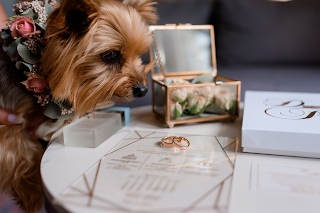Question Words in Serbian
With all the question words changing according to the cases, I bet it's pretty confusing when it comes to asking WH questions in Serbian. That's why I'll share a series of posts with question words in Serbian.
The first one is going to be an easy one, with the basic questions such as:
- KAD - When?
- ZAŠTO - Why?
- ŠTA - What?
- KOJI - Which?
- KO - Who?
- KOLIKO DUGO - How long?
- KOLIKO ČESTO - How often?
- KAKO - How?
- GDE - Where?
- ODAKLE - Where from?
- KUDA - Where to?
- KOLIKO - How much/ many?
- ČIJI - WHOSE?
Exercises with Question Words in Serbian
- The link to the micromatch game:
FLASHCARDS with Serbian Question Words
- The link to the flashcards:
TEST with Serbian Question Words
- The link to the test:
Expect a more complicated set of questions words with the video lesson very soon!
For downloadable materials and more video lessons, check out my free course SerbianPhrases on easy.serbianphrases.com :)

.png)



















